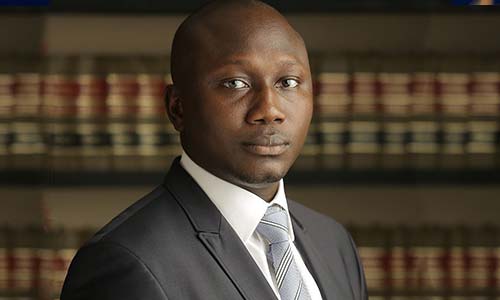KNOW THE LAW 28/02/2022
Political Defection In Nigeria: Issues And Legal Implications

INTRODUCTION
Political defection seems to have become a recurring feature in Nigerian politics. It is a custom that predates our independence as a country. As far back as 1951, members of the pre-independence political parties defected to rival political parties in a bid to secure their interests.[1] While it is true that politicians have the fundamental right to freedom of association, it is still pertinent to note that certain rights come with limitations. Scholars have continuously agitated for the enactment of proper laws that will curtail the rate of political defections, but this has not been addressed as defections are still on the rise. It is on this premise that we shall examine the basis and legal implication of political defections in Nigeria.
DEFINING THE CONCEPTS
Before a proper dive is taken into the crux of the issue, it is important to properly understand the concepts that will be frequently used in this discourse.
Defection
Defection has been defined by the Black’s Law Dictionary[2] as ‘Abandonment of allegiance or duty; the forsaking of a person or cause; desertion.’ Similarly, the New International Webster’s Comprehensive Dictionary[3] defined defection to mean ‘Abandonment of allegiance or duty; failure’.
In other words, defection is the act of abandoning one’s allegiance for another. In political terms, it can mean the forsaking of one’s political party for the opposition.
Political Party
The Black’s Law Dictionary[4] defined it as ‘an organization of voters formed to influence the government’s conduct and policies by nominating and electing candidates to public office’. Simply put, it is the coming together of like minds, with the sole aim of electing candidates to occupy public offices on behalf of the political party.
CAUSES OF POLITICAL PARTY DEFECTION IN NIGERIA
Political defections in Nigeria can be associated with many factors. The actions of politicians are usually influenced by a diverse range of factors. These factors include, but are not limited to the following:
Undefined Political Ideology
It is often said that ideas rule the world because it is the pinnacle upon which things are created or even destroyed as the case may be. In Politics, ideas are fundamental to the growth of a political party. Ideologies help define the dealings of a political party which helps in sharpening the rough edges of leadership. In a heterogeneous society like ours, it is only normal to have people with divergent views as regards societal issues. This is not in any way different from political parties that have members drawn across various ethnic nationalities. To this end, chaos is inevitable, and the only unifying factor would have been a political ideology, but this is lacking in the Nigerian political sphere. It is suggested in some quarters that the fight for the superiority of ideas may have taken the place of unity in the scheme of things.[5]
Political Interests
The core aim of political parties is to produce leaders that will occupy public offices and in turn better the lives of the masses. It is against this backdrop that men of like minds decided to lock horns, to fulfil their desired interest or goal as a whole. Indeed, political parties are associations formed for communing; where people only become members to achieve a particular interest. Although political parties are formed for the fulfilment of desired interests, there are still shortcomings as the interests of members are not always actualized, and the resultant effect becomes disharmony. For example, where a politician joins a political party to clinch the governorship ticket of the party and for some reasons, he fails the primary election, he might be aggrieved, and may likely defect just as we have seen in time past.
THE LEGAL EFFECT OF POLITICAL DEFECTION IN NIGERIA
Every human action comes with its consequence, and so it is with political defections. The constant cross-carpeting by politicians from one political party to another has become a constant in our nation. Thus, the need to examine the legal implications.
It is rather astonishing to say that, political defection is not only legitimate but is provided for in the Nigerian Constitution, albeit with exceptions. The legitimacy of political defections in Nigeria is derived from the right to freedom of association enshrined in the Constitution, particularly in Section 40[6] which provides thus;
“Every person shall be entitled to assembly freely and associate with other persons, and in particular he may form or belong to any political party, trade union or any association for the protection of his interests.”
Notwithstanding the provisions of the above section, it is imperative to note that the right to freedom of association is not absolute for politicians. There are circumstances where a politician will be deterred from defecting even though he has a right to freedom of association. An instance where this is disallowed is found in section 68 (1) (g) where it states regarding members of the national assembly that:
Section 68(1) –
“(g) being a person whose election to the House was sponsored by a political party, he becomes a member of another political party before the expiration of the period for which that House was elected; Provided that his membership of the latter political party is not as a result of a division in the political party of which he was previously a member or of a merger of two or more political parties or factions by one of which he was previously sponsored;”
From the above provision, it is crystal clear that a politician who is a member of the National Assembly can only defect under exceptional circumstances. One of them is a division in the political party that the intending defector belongs to. This position has been elucidated in Agbegunde v O.S.H.A[7] as follows;
“…is to the effect that only such factionalization, fragmentation, splintering or “division” that makes it impossible or impracticable for a political party to function as such will, by virtue of the proviso to section 68(1)(g) of the 1999 Constitution, justify a person’s defection to another party and the retention of his seat for the unexpired term in the house in spite of the defection. The division must affect the entire structure of the political party at the centre, that is to say, national leadership. Otherwise, as rightly held by the trial court and the Court of Appeal, in this case, the defector automatically loses his seat…”
The other condition is that a member of the National Assembly can only defect when a faction of a political party that he previously belonged to merges with another.
The purport of the above provision is that political defections in the National Assembly are only allowed in limited situations. It is crystal clear that the constitution restricts it and the same has been given judicial favor as stated above.
CONCLUSION
Given the above, it will suffice to say that the provisions of the Constitution as it relates to defections do not apply to all politicians. The provision only covers National Assembly members, and so a politician who is not a member of the National Assembly can defect without being stopped by the law.
It is recommended that similar provisions like Section 68(1)(g) be made to include all politicians holding public offices and not just members of the National Assembly, with further recommendation on the need for the electorates to unite, and make the right decisions while casting their votes without party or ethnic sentiments.[8]
AUTHOR: Oyetola Muyiwa Atoyebi, SAN.
Mr. Oyetola Muyiwa Atoyebi, SAN is the Managing Partner of O. M. Atoyebi, S.A.N & Partners (OMAPLEX Law Firm) where he also doubles as the Team Lead of the Firm’s Emerging Areas of Law Practice.
Mr. Atoyebi has expertise in and a vast knowledge of Litigation and Dispute Resolution and this has seen him advise and represent his vast clientele in a myriad of high level transactions. He holds the honour of being the youngest lawyer in Nigeria’s history to be conferred with the rank of a Senior Advocate of Nigeria.
He can be reached at [email protected]
COUNTRIBUTOR: Emmanuel Sogo
Emmanuel is a member of the Litigation and Dispute Resolution Team at Omaplex Law Firm. He also holds commendable legal expertise in Constitutional Law.
He can be reached at [email protected]
[1] Ademola Adewale, ‘The History and Law of Political Carpet Crossing in Nigeria’ (2009) (11) Squib Guest <http://squibguest.blogspot.com/2009/11/history-and-law-of-political-carpet.html> Accessed 11 January 2022
[2] Bryan A. Garner, Black’s Law Dictionary (Thomson Reuters, Tenth Edition)
[3] Standard International Media, The New International Webster’s Comprehensive Dictionary of the English Language (2013 Edition)
[4]Black’s law dictionary (Supra)
[5] Eme Owa, ‘The Place of Political Ideology in Nigerian Politics’ (1974) (10) JCZ <https://journals.co.za/doi/pdf/10.10520/AJA00020117_132>Accessed 15 January 2022
[6] CFRN 1999
[7] (2015) 8 NWLR 314.
[8] Eme Okechukwu, ‘The Legal/Constitutional basis of Political Party Defection in Nigeria’ (2014) (3) AJBMR <https://www.arabianjbmr.com/pdfs/KD_VOL_3s_11/2.pdf> accessed 25 January 2022



